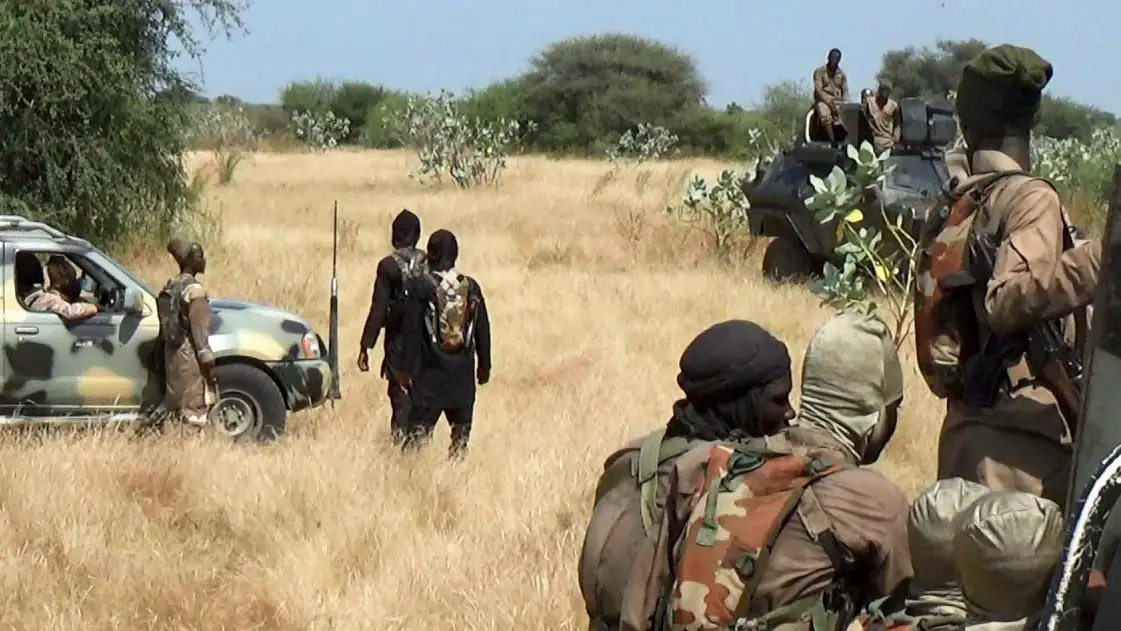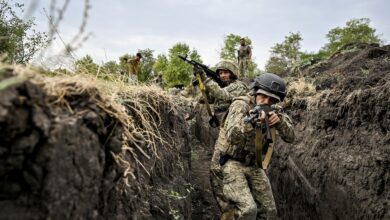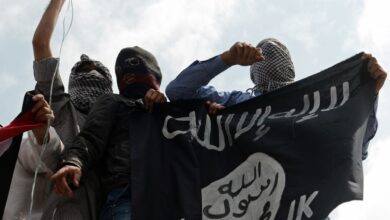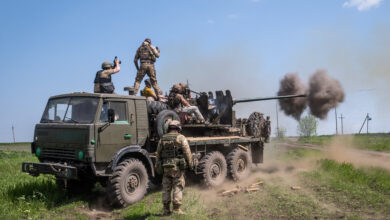Islamic State claimed fighters from its West Africa Province affiliate attacked a military base in the northern Borno state town of Kareto, while media reports said the battalion’s commanding officer was killed.
ISIS in a Thursday, June 13 statement said ISWAP fighters attacked the base in Kareto with light medium and heavy weapons. It claimed “at least 20” Nigerian soldiers were killed and others injured, that a “tank” and a Shilka self-propelled anti-aircraft weapon were destroyed, and the base was burned. Seven four-wheel drive vehicles, weapons and ammunition were captured, the statement said.
Kareto is around 135 km (84 miles) northwest of Borno state capital Maiduguri, not far from the Niger border.
Premium Times reported a Boko Haram attack on a base in Kareto on June 12, Nigeria’s Democracy Day national holiday, which marks the day the military handed power to the elected government in 1999.
According to the report, 158 Task Force Battalion was attacked and “several casualties” were recorded, including the lieutenant colonel in command of the battalion who was killed. An unnamed security source gave Reuters a similar account.
According to Premium Times the militants had moved to Fuchimiram village, around 6 km west of Kareto, after the attack.
On May 22, ISIS released a video showing ISWAP attacks and the execution of nine people, including one tank crewman who was killed with a rocket-propelled grenade. The video featured extensive battle footage of attacks against military bases, including a raid on a base in Kareto in November.

String of ISWAP attacks north of Maiduguri
Since July last year, ISWAP has intensified attacks on military targets, killing dozens of soldiers and overrunning bases mainly in the Lake Chad region of Nigeria, Chad and Niger where it is the dominant insurgent group.
The apparent raid on Kareto is the latest incident in a series of large attacks on military base carried out by ISWAP fighters north of Maiduguri in recent weeks.
On May 20, at least three Nigerian soldiers were killed in an ISWAP attack on a base in Gubio, around 50 km south of Kareto. One humanitarian worker told Reuters that they had counted the bodies of more than 15 dead soldiers, while ISIS claimed 20 soldiers were killed and others injured. A release published by ISIS propaganda agency Amaq included an image of what appears to be a captured police Otokar Cobra armored vehicle
On May 10, ISWAP fighters attacked Forward Operation Base Gajigana, around 44 km southeast of Gubio. ISIS claimed 11 soldiers were killed and others injured and the base was burned. The Nigerian Army later said that only two troops were injured in the attack, and that a number of militants were “exterminated.”
A week earlier, ISWAP militants overran a military base in Magumeri, around 40 km south of Gubio, holding it for several hours. Reinforcements from Gubio dislodged the insurgents, according to a militia leader. ISIS claimed that 10 soldiers were killed, and published images of what it said were ISWAP fighters attacking “Mamri.”

The number of military casualties caused in recent attacks is unclear. The Nigerian military seldom comments on the ongoing counter-insurgency operations, and tends to downplay the insurgents’ effectiveness, rarely acknowledging engagements and seemingly understating military casualties and equipment losses.
In one case, after ISWAP fighters attacked a Nigerian military base in Sabon Gari near Biu, around 135 km southwest of Maiduguri on April 26, the army described reporting on the incident as “unsubstantiated” and “fake,” saying it was the handiwork of “Boko Haram sympathizers.”
A month later on May 24, ISWAP fighters ambushed a convoy that was transporting civilians from Sabon Gari to Damboa. Media reported that between five and 25 Nigerian soldiers died in that attack, but again the Nigerian Army described those reports as “fake news” and denied there had been any attacks on military personnel in Borno state.
Decade-long cross-border insurgency
The jihadist group known as Boko Haram began its bloody insurgency in northeastern Nigeria in 2009, but it has since spread into neighboring Niger, Chad and Cameroon, prompting a regional military response. More than 27,000 people have been killed and two million others displaced, sparking a dire humanitarian crisis in the region. On April 30, the U.S. Ambassador-at-Large and Coordinator for Counterterrorism Nathan A. Sales said that the U.S. assesses that Boko Haram and ISWAP “have been responsible for over 35,000 deaths since 2011.”
Boko Haram split into two factions in mid-2016. One, led by long-time leader Abubakar Shekau, is notorious for suicide bombings and indiscriminate killings of civilians. Shekau pledged allegiance to ISIS leader Abu Bakr Al-Baghdadi in March 2015, but ISIS central only gives formal backing to the other faction, which it calls Islamic State West Africa Province.
The ISWAP faction, which largely focuses on attacking military and government targets, was led by Abu Mus’ab Al-Barnawi, but in March, audio recordings revealed that ISIS appointed Abu Abdullah Idris bin Umar, also known as Ibn Umar al-Barnawi, as leader. ISIS has not yet made a public statement confirming the change.












